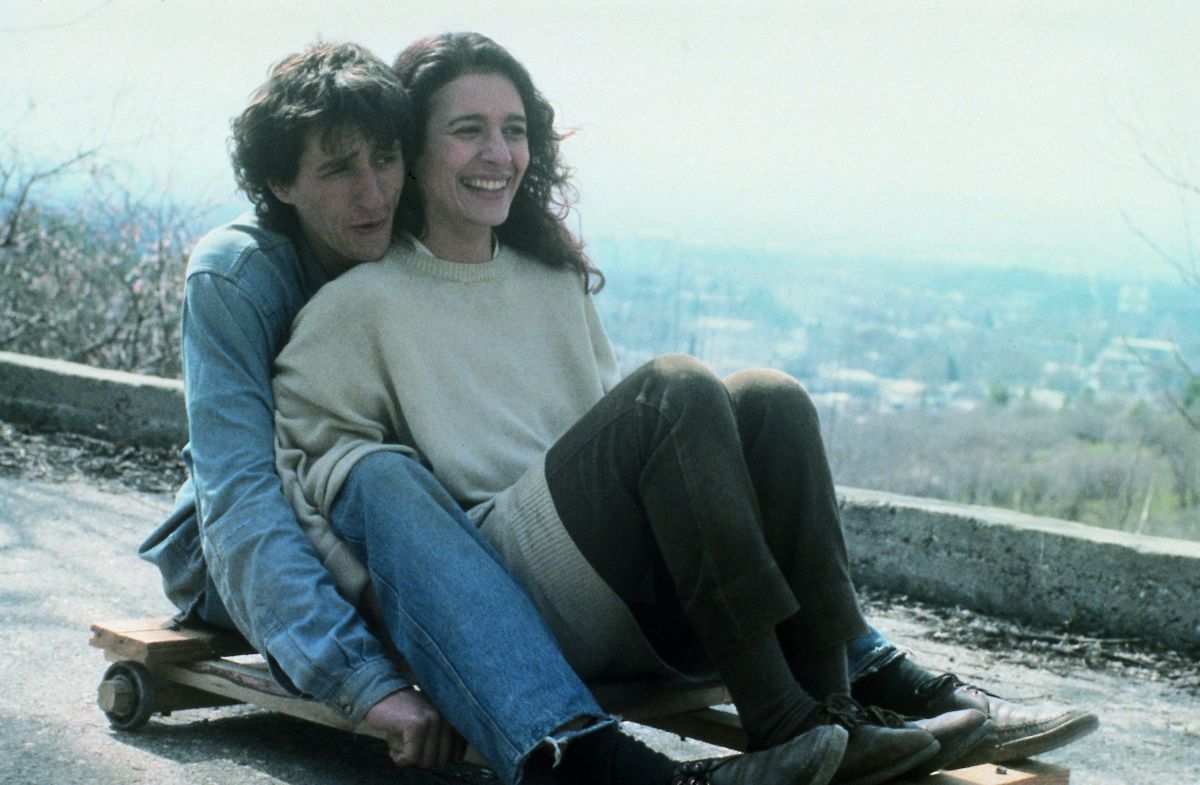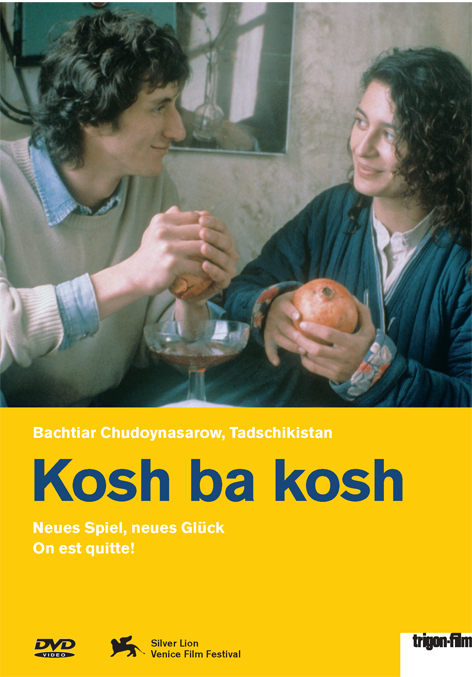Kosh Ba Kosh (1993)
Synopsis
Undisturbed by the gunshots in the background and the corpse floating by on the muddy river, a motley group of men are gambling with their money as if there's no tomorrow.
When Donai has no bills left, he wagers all of his possessions and valuables but loses them to Ibragim, who is not too thrilled about this turn of events.
After all, the meager belongings in Donai's apartment have little value. But then Mira, Donai's young and beautiful daughter, comes to visit from Russia and Ibragim insists that she will come with him, despite her loud protests.

Daler, a young and charming wheeler-dealer who is part of the gambling group, is immediately smitten with Mira and steals her away while Ibragim and Donai are arguing.
With the help of her savior, Mira gets to know the life in Dushanbe, a city where the sounds of frequent bursts of machine guns and sirens punctuate the days, and nights are patrolled by tanks enforcing martial law.
As Mira reluctantly begins to return Daler's advances, the two find an unlikely refuge - a funicular where he has been staying, with the operating booth and the cable cars serving as their cozy home.
Under Daler's control and suspended in the air with Dushanbe down below and the snow-capped mountains in the horizon far away, the funicular becomes their haven. As both their fathers are looking everywhere for them, Daler and Mira attempt the impossible: to think about love in a time of war.
Cast: Paulina Gálvez, Daler Madzhidov, A. Kasimov, Bokhodur Durabajev, Albardji Bakhirova
* * *
"Odds and evens" is the literal translation of the title of this subtle and remarkable film, which revolves around how much control people have over the circumstances they are dealt and the "luck of the draw" in their lives. As in Luna Papa, his subsequent international success film, Bakhtier Khudoinazarov already demonstrates in Kosh ba Kosh his skills in sketching out amiable oddball characters who somehow manage to deal with their lot, no matter how absurd life may get.
However, in contrast to the farcical high spirits that animate Luna Papa, Kosh ba Kosh, while ostensibly a charming love story, is a film very much structured by the impact of civil war in Tadjikistan, a war that killed thousands and displaced over 300,000 people. As much as it focuses on the budding romance between Daler and Mira, the film never loses sight of the larger picture – how difficult it is to get by when everything dear and familiar is falling apart.
Indeed, filming for Kosh ba Kosh began during the fall of 1992 at a dangerous time when Islamic fundamentalists battled the regime of former Communist party leader Rakhmon Nabiyev. Production was halted several times and could only resume when Russian forces supporting the Communists entered Dushanbe, imposing a tenuous cease-fire.
While we never witness the actual civil war, its ramifications affect all the characters no matter how much they try to ignore what is going on around them. Instead, gunshots and the sirens of the militia racing down the streets interrupt even the most lyrical and private moments.

In this sense, the funicular serves as a poignant reminder of a desperate search for a safe place, away from the misery and despair of everyday life. By flying away into a state of transcendence, high above everything else, however briefly, Daler tries to offer Mira a sense of what it might mean to have a home together.
But Mira, who, as a Russian, finds herself in a hostile and alien environment, must develop her own way of coping with her circumstances. Played by the Spanish actress Paulina Galvez (her voice dubbed into Russian after shooting), Mira is much more than just an exotic presence in the film. As much as Daler tries to convince her – and himself – that he is in charge of the situation, his street smarts are not enough to charm her into staying with him.
Like the widows and refugees who roam the streets, Mira must learn how to rely on herself. The concept of family or friendship might produce a semblance of hope here, but it is not enough to sustain her safety. Both she and Daler are trapped in the illusion of escape, but what characterizes the funicular is its unyielding movement. Even when controling the machinery, one can only halt or suspend its progress.
Its direction might be changed, but never its destination. This measure of reflection is what Khudoinazarov brings to the film's love story as well: small but significant personal issues reflect large-scale social problems and Kosh ba Kosh is an attempt to capture this relation. It is no accident, therefore, that mirrors function so prominently at crucial moments in the film.
|

Read about this film
Title: Kosh Ba Kosh (1993)
Directed by: Bakhtyar Khudojnazarov
Date of birth: May 29, 1965, Dushanbe, Tajikistan
Writing credits:
Bakhtyar Khudojnazarov, Leonid Makhkamov
Music by: Akhmad Bakayev
Country: Tajikistan | Russia | Switzerland | Germany | Japan
Language: Tajik
Color: Color
Runtime: 105 min.
|

